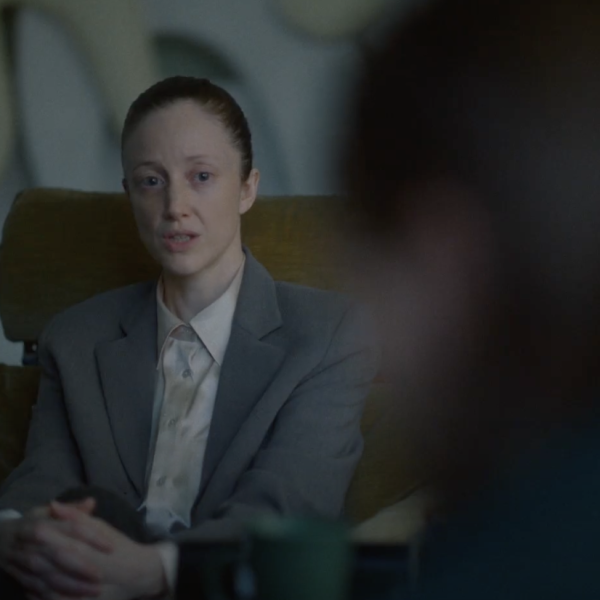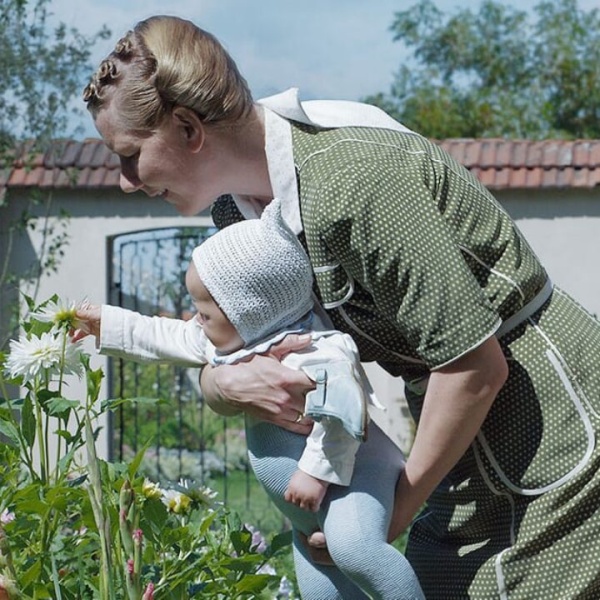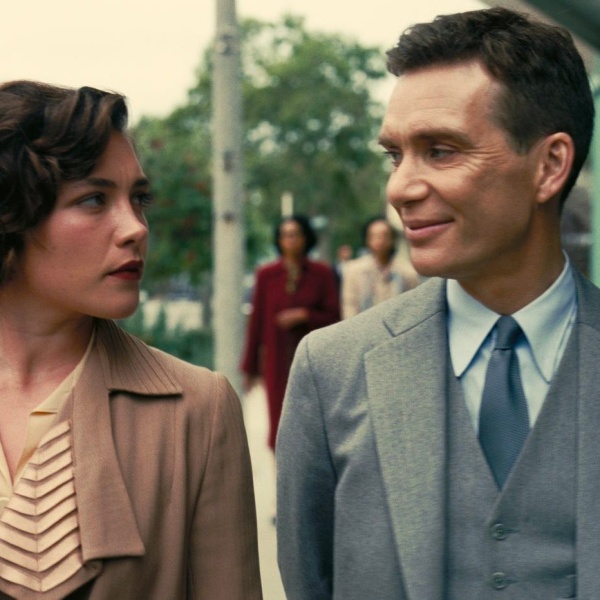
Gus Van Sant has long been fascinated by young people – the way they interact with each other, the way they move, the way they emote, and, most importantly, the way they die (or at the very least face their mortality head-on – you could even lump his interesting, if aimless, “Psycho” remake in there). But he’s never dared to make a movie as self-indulgent, pointless, mushy, and boring as “Restless,” one that borrows heavily from movies much better than it (“Harold & Maude,” “Love Story,” “An American Werewolf in London,” countless French New Wave flicks), and fails to leave even the slightest impression, beyond the thought of never, ever, ever wanting to see it again.
The movie opens with a young waif, named Enoch (yes, it’s that kind of movie), played by Henry Hopper, Dennis’ son. Enoch is tracing a chalk outline of himself against the blacktop, emulating the kind of procedure the police use to identify where a body has fallen (at least in old timey gangster movies). Young Enoch, with his expertly assembled outfits and horizontal dash of hair, is obsessed with death, for reasons that are explained later. His best friend is the ghost of a Kamikaze pilot named Hiroshi (Ryo Kase) and he gets his thrills by gate crashing funerals. It’s at a funeral that he meets Annabel Cotton (Mia Wasikowska). She’s just as preciously eccentric as he is – her hair styled into a “Rosemary’s Baby” bob, her clothes antique and mismatched – and the two quickly fall in love.

Of course, fairly soon after, it’s revealed that Annabel is terminally ill with cancer (a brain tumor is pushing down on her grey matter), which of course makes their relationship even more cloying since it’s now doomed. Questions arise limply, without a whole lot of emphasis or enthusiasm: What of Enoch’s relationship with the Japanese ghost? Will they be driven apart by Annabel’s arrival (and eventual departure)? What about the revelation that Enoch’s parents were both killed in a car accident? Does any of this matter? The answer, it turns out, is no.
Instead, the movie just meanders for about 90 minutes, punctuated by PG-13 levels of softly lit teen lovemaking and typified largely by Hopper’s dogged refusal to act. He’s just a glum teen, without any depth or dimension. If they gave out Oscars for sulking, then he’d already be a forerunner. But when it comes to creating an engaging, fully developed on-screen presence, Hopper is a dud, lacking his father’s intensity, charisma, and wild-eyed charm. He’s a pretty young face, which is clearly all that Van Sant is interested in. Wasikowska, for all her cuteness, feels more like a prop – something that’s just meant to stand there and incite some kind of tension, even if it is marginal. And what’s more, the way that Van Sant has styled and characterized her makes us think that he probably wanted to do some kind of gay doomed love story instead of a straight gay love story. Had he gone the gay way, maybe he would have made an interesting movie. Instead, it’s just a sloppy, rudderless dud.
Gone, even, are Van Sant’s technical flourishes. There’s nothing particularly jazzy about the way he presents the material, shocking considering how many times we’ve seen this type of thing before. He’s working again with the ridiculously talented cinematographer Harry Savides, but all he can think to do is shoot the Pacific Northwest settings with an emphasis on their dampness (man, look at that puddle!) Composer Danny Elfman, another longtime Van Sant collaborator (his score for “To Die For” is one of his all-time best), can’t be bothered to inject much life in this project, either, falling back on twinkly, unforgettable melodies that seem to hang, daintily, from the (rain-soaked) trees that our characters walk by.
“Restless” is an unmitigated disaster. Even at his most toxically self-satisfying, Van Sant can be an interesting filmmaker – there are moments of true technical virtuosity and narrative boldness in even his smallest of cinematic doodles – but here he seems to have given up completely. Maybe he thought the love story he’s presenting was engaging enough, that he didn’t need to sprinkle any tinsel around it to make it interesting. These stories have been around forever, he must have assumed, this will be one for the new generation. But so much of it feels archaic and painfully out of touch – no one ever goes on a computer or checks their cell phone or even mentions current events, and the teenagers seem to never embrace their sexuality outwardly, as if Van Sant is begrudgingly accepting their heterosexuality – that it can’t even be defined as a “modern” version of the story. It’s an endurance test to sit through, these levels of twee cuteness can be deadly, and the undisputed low-point of an incredibly fascinating career. Van Sant has the tools and the talent to make truly remarkable films but here he’s turned his back on those instincts. He’s gone inward. And, as an audience, we’re the ones who suffer. [D-]




